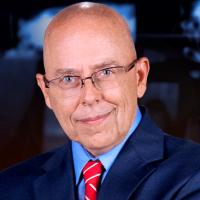Waves of Earthquakes, Aftershocks Continue to Shake America: Build Up to the Big One or Blessing in Disguise?
2019 has been blessedly free of any killer earthquakes in the United States. But there have been many thousands of smaller ones and they've been spread across the nation. Is the ground beneath our feet building up to something catastrophic? Or could these smaller quakes be a blessing that's saving us from major disaster?
Scientist Jeff Zweerink at California's Reasons to Believe Institute explained no seismologist can really say whether these smaller quakes will lead to the Big One many fear. And they might actually hold off the Big One.
"As plates move, there's going to be energy built up there," he told CBN News. "And so in some sense, a whole bunch of small earthquakes may be better than a couple of larger ones, because you kind of dissipate that energy little bits at a time instead of having one big one that releases all the energy."
100,000 Aftershocks
More than 100,000 aftershocks have rumbled California since a July 4 quake hit the Mojave Desert, followed by a 7.1 magnitude quake the next day.
In October, five large earthquakes shook the Pacific Ocean off the Oregon coast. It's worrisome since that's home to the Cascadia Subduction Zone, and important because it could someday unleash what's likely to be America's deadliest natural disaster on everything west of Interstate 5. It could be a triple whammy of killer quakes, tsunamis hundreds of feet high, and erupting volcanoes along the Cascade Range.
Zweerink suggested it's no surprise there's so much action on the West Coast.
"You just look around the whole Pacific Ocean. That area is just surrounded by tectonic plates that are moving and sliding over one another," Zweerink explained. "There are just faults littered throughout this region, because this is where all that tectonic activity is happening."
Most California Buildings Still Uninsured for Quakes
And while he thinks California's prepared well for its inevitable quakes, nine out of 10 commercial buildings and eight out of 10 homes there still have no earthquake insurance.
Seismologist Lucy Jones warned her fellow Californians, "We're going to have a lot more earthquakes and we're going to have a lot more shaking."
Jones estimates if that Mojave Desert quake had struck Los Angeles instead, it might have cost $200 billion in damages.
Elsewhere, more than 140 quakes shook Oklahoma just in October. But they may have an interesting origin.
Zweerink described them as, "Small-scale earthquakes that it looks like are human-caused. Some of that's related to the way we're drilling for oil down there. We extract the oil and we inject water back in and it just kind of shifts the balance a bit and so the earth kind of readjusts and it comes back to a more equilibrium state."
But he doesn't find the swarms of quakes around the US at all surprising.
"You look across the United States and there are places where earthquakes have just always happened," Zweerink noted. "There's some stuff in the Midwest, the Missouri area – the New Madrid fault. There's obviously stuff along the California coast. These are just places where we expect tectonic activity to happen."
The Best Attitude
This man of science and faith advised folks not to let the fear of quakes eat them up.
"You exaggerate it and say 'Oh, we're in imminent danger of having this Big One that's going to wipe out humanity.' Well, just as a Christian, I see it's best to be aware of what's going on, be adequately prepared and knowledgeable of it, but not make it a bigger deal than it is," he said.
Zweerink's other recommendation: do everything FEMA advises in its "When the Earth Shakes" video– available on YouTube -- and you should be good to go.
In one part of that video, the narrator asks, "Are your emergency kits packed? And what about your family and friends – do they know what to do, how to get in touch, and where to meet?"
The video advises during a quake, "Drop to hands and knees to avoid falling down. Protect yourself from debris: seek protection under a sturdy table, next to low furniture, an interior wall or in a corner."
If you're outside when a quake hits, it suggests, "Drop to avoid falling down."




